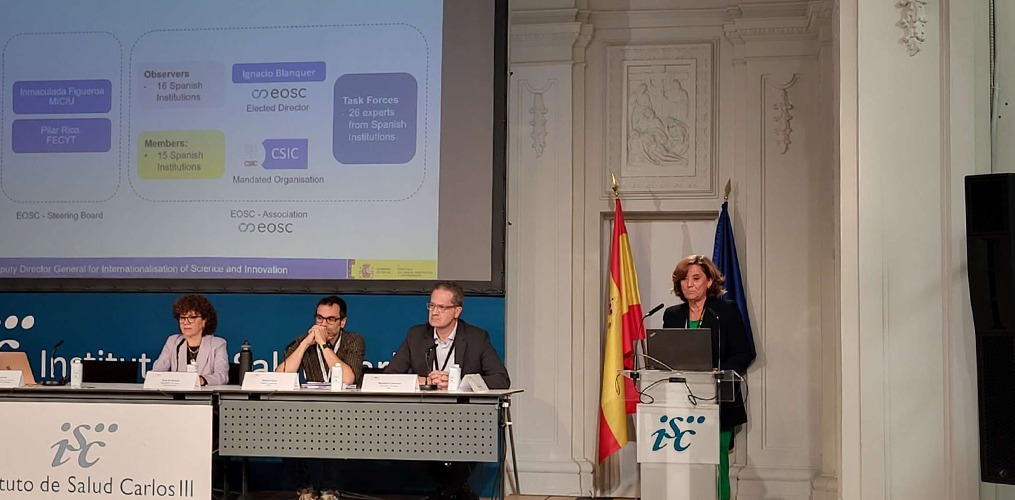
The Institute of Health Carlos III hosted the first RICH Europe Symposium on Research Infrastructures in Madrid, Spain, on May 7th. The symposium focused on integrating and developing open science within European research infrastructures (RIs) through a series of presentations and discussions held in three sessions. It also showcased relevant funded projects and promoted a global dialogue on research infrastructures.
Inmaculada Figueroa, Vice Director General for Internationalization of Science and Innovation, General Secretariat for Research, member of the EOSC Steering Board, and Spanish Ministry delegate to the LifeWatch ERIC ERIC General Assembly, opened the first session. Participants discussed how research infrastructures can benefit from EOSC to implement Open Science. The governance and strategic development of the European Open Science Cloud (EOSC) also was discussed, as well as specific Horizon Europe projects that have contributed to this development, such as AI4EOSC and Skills4EOSC.
The second session of the RICH Europe Symposium shifted the discussion towards practical applications of open science practices within research infrastructure frameworks, including challenges in creating a digitally skilled workforce and fostering a web of FAIR data. The third and final session explored the role of research infrastructures in supporting Europe’s green and digital transition, detailing specific EU projects and their contributions to sustainability, broader access, and advanced research capabilities. Each session included a time for questions, answers, and debates, encouraging interactive participation from attendees.
To learn more about the Symposium, please visit this page: https://rich-europe.eu/events/1st-symposium-of-research-infrastructures/